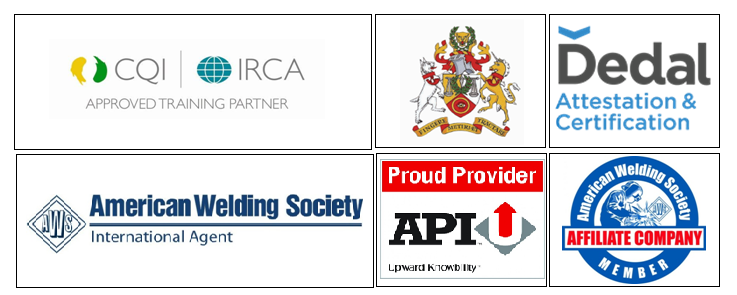All About AWS CWI Renewals and Upgrades
AWS CWI renewal how:
Please be aware that it is your responsibility to renew your certification before it expires. You will not be allowed to renew your certification after the expiration date. In order to re-certify after your certification has expired, you will be required to test on all parts or part B of the CWI/SCWI examination.
AWS CWI renewal certification who eligible:
To qualify for a renewal, all CWI applicants must attest to having no continuous inactivity two years or greater, of the three-year certification period, in the practice of welding inspection .This work experience must be documented in the Qualifying Work Experience section of the application. Resumes are not acceptable.
Additionally, you must also provide a current Visual Acuity Record with your application. The Visual Acuity Record cannot be more than (6) months prior to the date of your certification expiration. Eye examinations must also be administered by ophthalmic medical personnel.
AWS CWI renewal when:
Certification becomes effective on the first day of the month following the date of examination. On that same month and day, expiration occurs three years later. A 60 day administrative extension period is allowed. During this time certification will be considered as expired. If the paperwork is received on time and all renewal or recertification requirements have been met, certification will be reactivated. For example,
1. Certification granted, May 1, 2003
2. Certification expires, May 1, 2006
3. Administrative extension period, May 1, 2006 to June 30, 2006
After June 30, 2006, applicant must be re exam and training for AWS CWI.
Our AWS CWI renewal cost is as below:
For AWS Active Member: – 450 USD
For Non member: – 600 USD.
AWS CWI upgrade:
CAWI applicants whose scores on each part of the examination met the requirements of a CWI but lacked the mandatory (5) years experience are eligible for a CWI upgrade provided that the CAWI status is still current. Please document any additional experience you have had since initially taking the CWI/CWE examination in the Qualifying Work Experience section of the application. Certification personnel will review the additional experience to ensure that the (5) year requirement has been met.
Please be sure to do the following before submitting your application to Eurotech:
• Check the appropriate box indicating the purpose of this application.
• Complete and sign the application (the address indicated on the application is where your documents will
be mailed).
• Visual Acuity Record enclosed.
• Payment is included with the application

